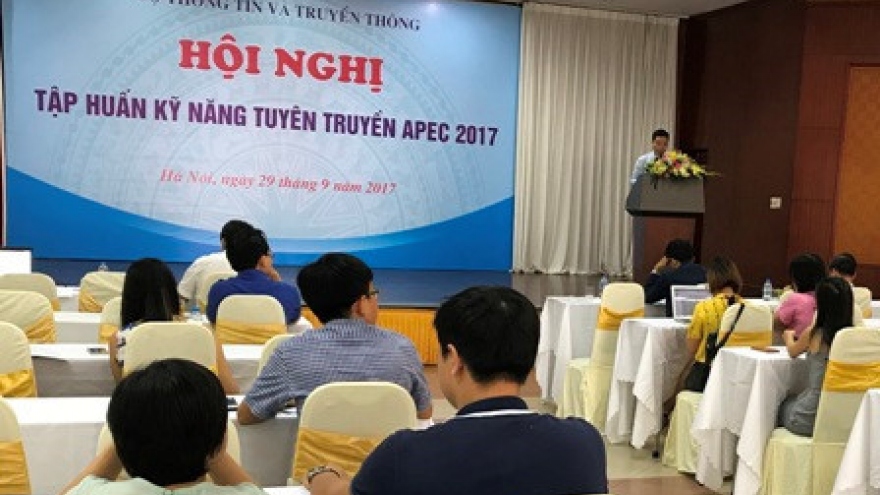Deputy PM reviews preparations for APEC Economic Leaders’ Week
Deputy Prime Minister and Foreign Minister Pham Binh Minh has thoroughly examined the preparations for activities of the APEC Economic Leaders’ Week scheduled for the central city of Da Nang in November.
 |
| Deputy Prime Minister and Foreign Minister Pham Binh Minh inspects preparations for the APEC Economic Leaders’ Week in Da Nang |
Representatives from the President’s Office, the Vietnam Chamber of Commerce and Industry, the People’s Committee and departments of Da Nang city and Quang Nam province, and about 190 volunteers joined in the reviewed activities.
So far, infrastructure for all hotels and convention centres, international media centres and other major venues that will host official and sidelines activities of the APEC Economic Leaders’ Week have been ready.
Deputy PM Minh lauded the efforts of Da Nang and Quang Nam, as well as sub-committees and relevant agencies in preparing for the event.
Approving scenarios for the APEC Economic Leaders’ Week, he directed the organization of all activities as well as alternative plans, thus ensuring smooth operation of the important events.
He requested that the utmost safety, security, and conditions of health care, food safety must be guaranteed, as must services for participants joining the Week.
The Deputy PM urged Da Nang, Quang Nam and other agencies to hasten final preparations, making sure that relevant agencies will coordinate closely without mistakes.
He also asked the People’s Committee of Da Nang and Quang Nam province to complete decorations of streets and strengthen communications to promote the image of Vietnam to foreign friends.
Established in 1989, the Asia-Pacific Economic Cooperation (APEC) comprises 21 economies, including Australia, Brunei, Canada, Chile, China, Hong Kong (China), Indonesia, Japan, the Republic of Korea, Malaysia, Mexico, New Zealand, Papua New Guinea, Peru, the Philippines, Russia, Singapore, Chinese Taipei, Thailand, the US, and Vietnam.
They account for 39 percent of the world population, 57 percent of the world GDP and 47 percent of the global trade, according to statistics in 2014.



